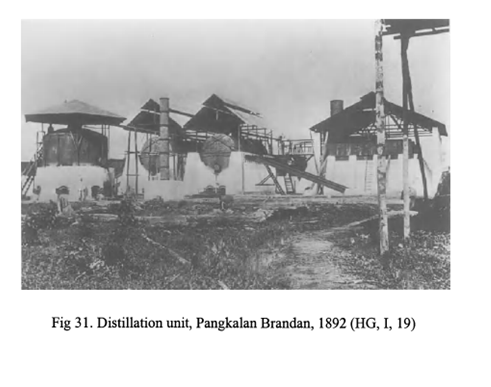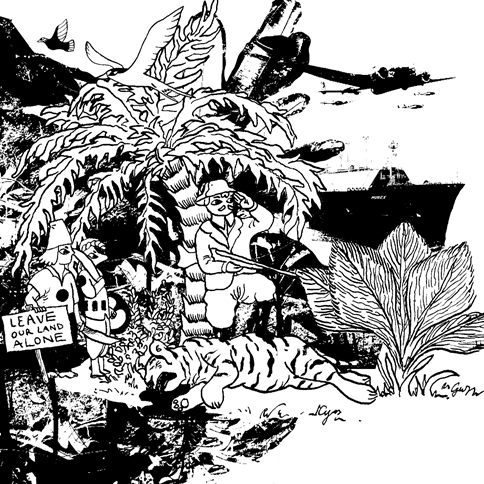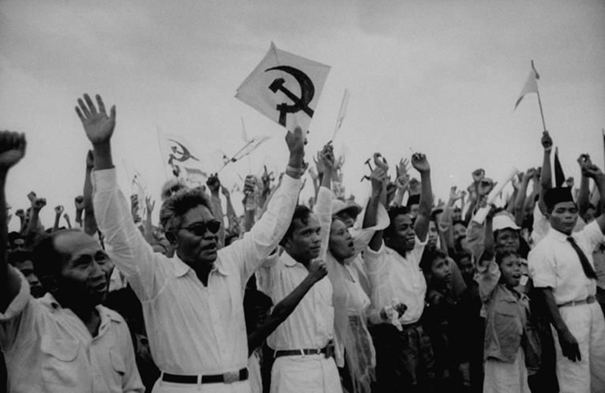In the thick jungle of Sumatra, right by the small Babalan river, lies the village of Pangkalan Brandan. The place had always been known for a special kind of phenomenon: around the settlements, oil bubbled up the surface to form small oil seeps. Since time immemorial, the people of Pangkalan Brandan had used the sticky liquid from the seeps to light torches and to waterproof their boats. Yet, no one had ever had the idea of making a great deal of money from this precious resource. Until Shell was born: Formed as an alliance of Dutch colonialists and British traders 1907, Royal Dutch Shell´s primary motive has ever since been to generate as much profit as possible by extracting oil from places like Pangkalan Brandan and burning and selling it around the world.
ince its inception, Shell´s activities were met with fierce resistance. As locals often refused to work for Shell, the company brought in contract workers from Java, Singapore, and Penang and other places. This did not prevent workers from organizing: In 1920, workers organized a strike at the main Shell subsidiary in Pangkalan Brandan and forced the company to agree to their demands. In 1926/27, Shell workers participated in a full-blown uprising against the colonial government on Java and Sumatra. Workers who were known to be members of the decolonial nationalist party Partindo, were fired. Thousands of union members were arrested. Many of those arrested were sent to the concentration camp, ‘Boven Digoel’, in New Guinea and some were even executed.

After the Indonesian Revolution, which resulted in the overthrow of the Dutch colonial regime, the oil industry was successively nationalized: For once, Shell had fallen! Nevertheless, Shell remains active in the region: In Singapore, the company operates its overall largest refinery and has recently been in the news for laying off hundreds of workers. In Brunei, Shell has closely been collaborating with an autocratic regime known for its human rights abuses. Shell also has controversial operations in Myanmar, Malaysia, Thailand, the Philippines, Hongkong and even in Indonesia again (where Shell has reappeared after the country´s economic opening in the neoliberal era).
History shows: Not only do Shell´s origins lie in in Southeast Asia – but so lie the roots of resistance against it! A century after the first large strikes at Shell’s site in Pangkalan Brandan, it is high time to finally make Shell itself history – in Southeast Asia and around the world!
Join us for a global day of action on May 18! For more info on Shell´s colonial origins, check out: https://futurebeyondshell.org/birth-of-a-corporate-colonial-player/


